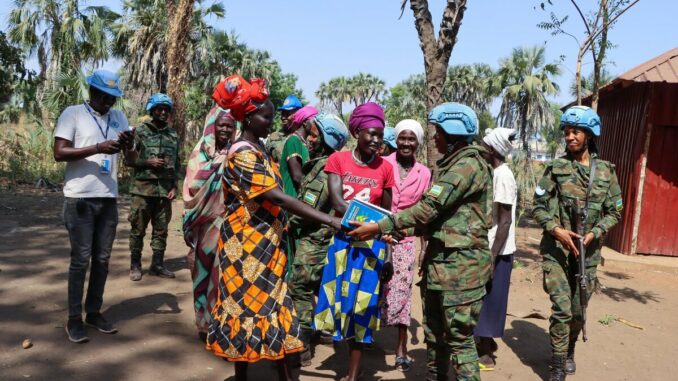
South Sudan, one of the world’s most challenging contexts for sexual and reproductive health and rights (SRHR), is making significant progress through a coordinated national initiative supported by the World Health Organization (WHO) and partners. Years of conflict, climate shocks, and disease outbreaks have severely disrupted the country’s health system, leaving many women and girls without access to essential services. With a maternal mortality ratio of 692 per 100,000 live births and high adolescent birth and unsafe abortion rates, the Ministry of Health has focused efforts on rebuilding primary healthcare systems. These efforts include training frontline workers, improving service coordination, and equipping health centres to offer life-saving interventions such as skilled birth attendance, post-abortion care, and family planning.
In key regions such as Warrap, Northern Bahr el Ghazal, Torit, Wau, Malakal, and Renk, over 190 health workers have received specialised training in family planning, maternal death surveillance, and the clinical management of rape. This has improved access to voluntary contraceptive services and ensured survivors of gender-based violence can receive timely, compassionate care. Midwives, like Faida Jackline of Juba, report newfound capabilities to manage sexually transmitted infections and assist more mothers, signalling broader benefits of the training. In parallel, WHO-supported community engagement efforts have reached over 540 local and religious leaders, helping address stigma and promote awareness around SRHR services.
A major milestone has been the rollout of South Sudan’s national post-abortion care guidelines, designed to manage complications from both spontaneous and unsafe abortions. Thirty-five primary healthcare centres were targeted, with at least 30% now equipped with manual vacuum aspirators, surgical beds, and essential supplies. In Juba County alone, six health facilities are now offering cervical cancer screening and comprehensive post-abortion care, led by newly trained midwives. Vivian Hawa, a reproductive health coordinator, praised the transformation, noting the quality care now accessible to women and girls in previously under-resourced communities.
Throughout 2024, the programme’s first year, 934 women received care for post-abortion complications—many from clinics that previously lacked such capacity. Health workers like Kenyi Emmanuel Wani from Munuki Primary Healthcare Centre acknowledged the shift, citing new skills and tools as critical to saving lives and preventing long-term complications. These efforts have not only addressed a pressing gap but also strengthened community trust in the healthcare system.
As the initiative enters its second year, WHO and the Ministry of Health are calling for continued investment to maintain momentum and deepen impact. “Access to quality SRHR services is a matter of dignity, rights, and resilience,” said Dr Humphrey Karamagi, WHO Representative to South Sudan. He reaffirmed the organisation’s commitment to ensuring no one is left behind as the country builds a more inclusive and resilient health system for the future.
